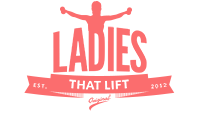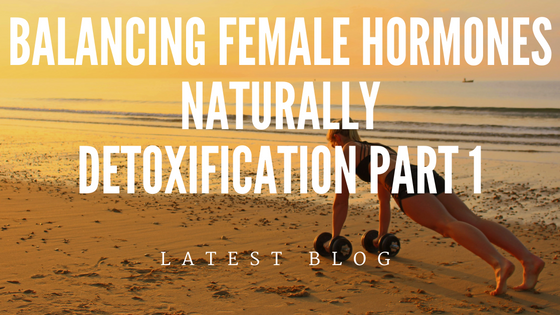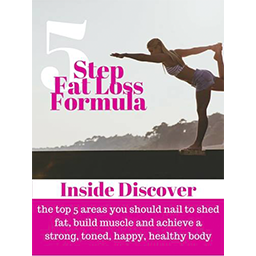In the previous post I covered oestrogen excess and oestrogen dominance (similar but different), and I explained that a huge part of healthy oestrogen metabolism is about being able to detoxify well.
It seems appropriate that today I write about detox (although a little ironic with the festive season approaching – might have to send this one out in January again!).
Detoxification is something that so many people get so wrong.
Come January you will have people in the health industry trying to sell you the idea of a “detox” or a “cleanse”.
No matter who is selling it to you, these tend to be the common ingredients:
- Low calorie
- Low protein & fat
- Likely to lack of solids or large amounts of liquids – juices/smoothies/soups
- May involve shakes, pills or supplements
- May involve missing meals or fasting
As I type this out I have suddenly realised…
Phew! There is a LOT we need to get straight here.
*Goes to top of the screen and adds “Part 1” *
So where to begin?
Let’s talk about why this approach may actually hinder detoxification, not support it and in Part 2 we can talk about what to do differently.
Low Calorie Diets
Do you remember the part when I told you how stress disrupts female hormones by potentially lowering progesterone?
Well under-eating is a stress – the biggest stress that we faced as man-kind before we learnt how to farm.
If you are looking for hormone balance, adequate calorie intake is ESSENTIAL.
I cannot tell you how many women I have worked with who are creating problems by their dieting behaviour in a pursuit for some self imposed body composition standard (and failing miserably!)
I would also add the detoxification is incredibly energetically expensive. You need to have energy to be able to detoxify. That isn’t going to happen if you are starving.
Low Protein & Fat
You might also remember the part where I explained that sex (and stress) hormones are made from fat.
We need to have enough fat in our diet to supply the building blocks for health hormonal balance (not to mention many aspects of health).
So dropping calories by cutting fat is a recipe for disaster.
Additionally, proteins are used to make enzymes.
We need enzymes to be able to detoxify.
Detoxification is taking something that is not useful to the body or needs to be recycled, changing it’s chemical structure and composition so that it can be excreted and then excreting it. ENZYMES do the changing chemical structure bit. Without them, you can’t do detoxification.
We get protein from our food, or we break down muscle tissue or gut lining or joint tissue or other fun stuff that you probably don’t want to be getting rid of, to supply it.
A low protein approach to detoxification just doesn’t work.
The final thing is, if you take out protein & you take out fat, that just leaves you with a pile of carbs.
Now most people I work with have hormonal imbalances partly because they need to lose some weight too. So having the majority of your diet from unopposed carbs (even if it is fruit and veg), is going to raise insulin and potentially affect hormonal balance too.
In Part 2, I’ll also explain that while the liver is too busy processing all these fruit sugars and carbohydrates. It’s not really thinking about detox.
Liquid Meals & Fasting
Now, liquid meals can actually be really great at times.
If you have digestive problems, having food which is already “chewed” so to speak, can be really helpful.
It ensures you have something that is easy on the digestive system and may help with nutrient availability.
However, living off liquid meals, especially if low in fat, protein (as already discussed) & fibre may have a negative impact on insulin levels meaning that you are more likely to crave sugar, gain wait around your mid-section and further disrupt hormones.
Solids keep you fuller for longer.
Protein, fat and fibre do too.
Many people claim they feel “better” on a detox diet but is it because they are detoxing or is it because their digestion is working better?
When digestive is off, it is a huge drain on our immune system, selfishly pulling energy away from our brain.
So would we benefit from perhaps doing a “digestive reset” (something I advise all my clients to do), instead of a detox diet?
The next piece of the puzzle is fasting or missing meals.
Again, this is something that does have it’s place from time to time. I DO recommend:
- a reduced meal frequency: 2-3 meals per day instead of 3 main meals and snacks
- time restricted feeding: not eating very early and very late but allowing at least 12 hours between dinner and breakfast
But…
This approach should NOT be combined with low calorie, low protein, low fat or liquid only diets.
Shakes, Supplements and Pills
Someone selling you some sort of product without talking to you about your current diet, your sleep, your stress, your exercise, your digestion and your ability to self care is just selling your something!
Supplements are what they say on the tin…
SUPPLEMENT-ARY to a foundation of good diet, getting enough sleep, attempts to manage stress, move your body, digest well and breathe!
Detoxification requires certain nutrients to support the “biochemical transformation” and there are certain supplements that can help, but food always comes first and I’ll talk about what food in part 2.
But I feel It Working!?
I know a lot of people will read this and think – I hear what you are saying, but, I’ve done a detox before and I felt it working?
Now I’ve already covered the “do you feel better because you are eating better and being kind to your digestion piece?”
But sometimes people can also experience lethargy, headaches & weight loss and think they are detoxing.
If you are experiencing negative symptoms like headaches and fatigue, it could be that you are actually becoming more toxic.
As you shed some body fat with your calorie restricted approach you will likely also be liberating fat soluble toxins into circulation that create an extra burden on the body (a burden that you have limited resources with which to cope, due to said reasons above).
If you are experiencing weight loss, well, that’s great BUT you may likely be losing a lot of water, some muscle and yes, some fat too BUT is it sustainable and what happens afters?
If you have done a detox before, did you rebound after? If you didn’t, let me know.
I did 2 when I was 16 which involved just eating fruit and vegetables and put the weight back on again within a week.
I also explain in Part 2 that detox is a life long journey. It’s not something that you achieve in 7 days of juicing or a 28 day sugar fast.
Doing those things may make your feel better about yourself for some reason or other, but it’s not because you are “detoxing”.
So, Phew! That’s it.
Now I have painted a horrendous picture of what “traditional” detox diets are actually all about, I will paint a much more positive picture of what you can to look after, love and nourish your body (an it’s detox pathways) in Part 2.
Stay tuned!

I run a small Online Women’s Weight Loss Program that offer a personalised nutrition and exercise support to produce life changing and life-lasting results.
If you want to give up the guessing game and have someone just tell you what to do and hold you accountable to actually doing it then this is probably exactly what you have been waiting for.
Life doesn’t get better by chance, it gets better by choice. Now you have a moment where you can choose to take a step towards a very different future and join the community of like minded women who are not just losing weight, but transforming their lives, filling them with happiness and health.
To find out more about how my coaching program can help you, please fill out the application below to book a complimentary breakthrough call and find out out about working with me in more detail.


